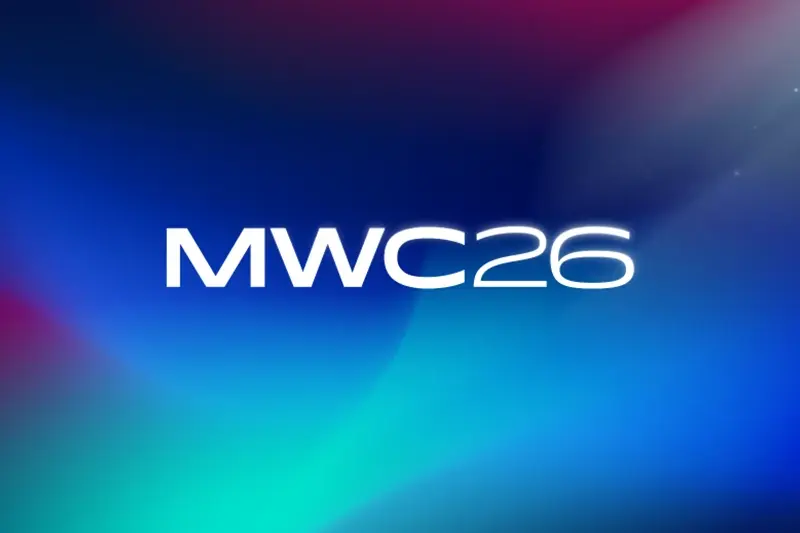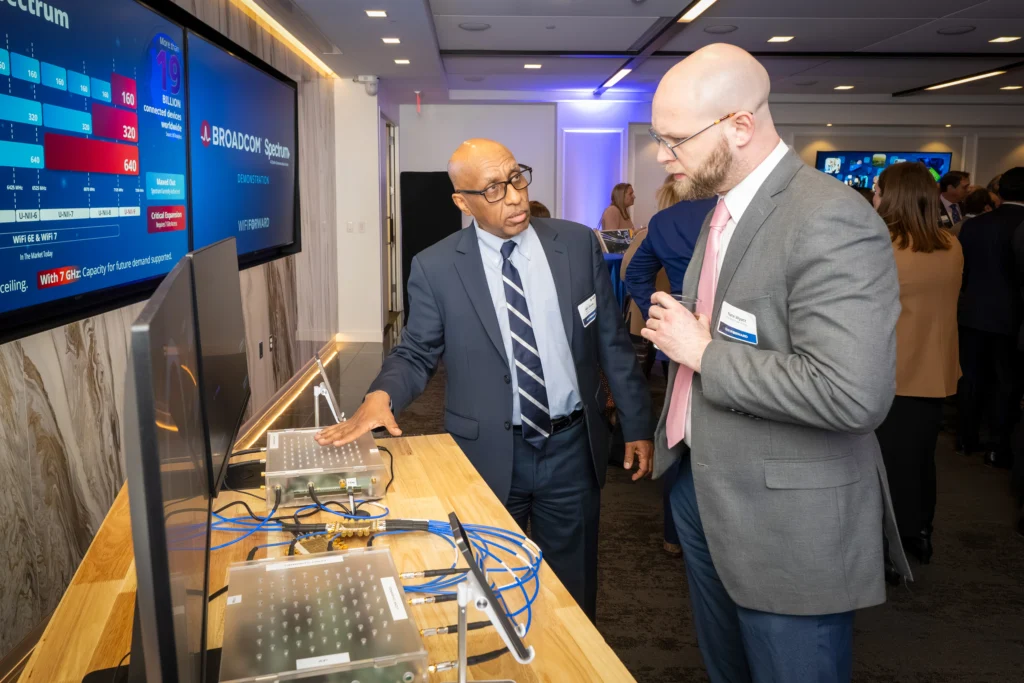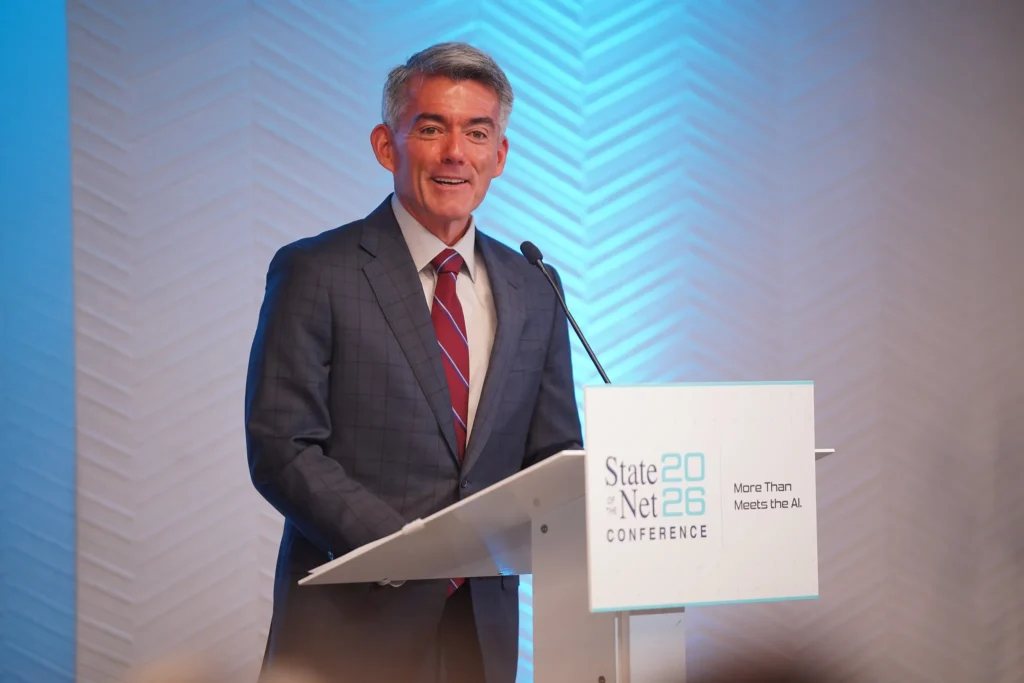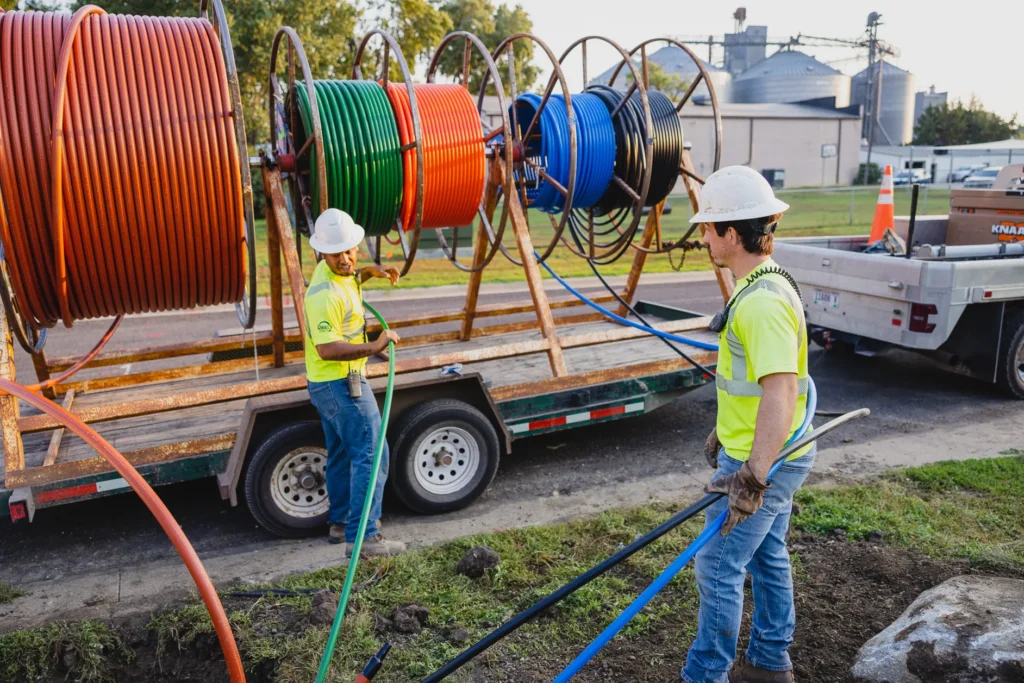T-Mobile Joins Industry Initiative
October 1, 2025 – Washington, D.C. – New independent audit reports highlight the enduring and increasing success of two award-winning communications-industry voluntary agreements in improving the energy efficiency of home internet equipment and video set-top boxes used in more than 100 million American households. These reports from the program independent administrator D+R International document substantial reductions in electricity consumption and measurable decreases in carbon emissions. The parties also announced that the programs would be extended through 2028, expanded to include the growing fixed wireless sector, and joined by T-Mobile.
Home Internet Devices
The Small Network Equipment Voluntary Agreement (SNE VA)—covering broadband modems, routers, and Wi-Fi extenders—was previously extended through 2028 and continues to drive improvements in device efficiency. The SNE VA Annual Report released today verifies that the average energy use of new SNE devices has declined by 89% relative to increasing broadband speeds since the program began, demonstrating that efficiency gains can be sustained alongside rapid technology evolution.
The parties announced an expansion of the SNE VA scope to include fixed wireless access (FWA) technology, adding over 13 million subscribers to U.S. households connected via wired internet service. T-Mobile, the nation’s largest FWA provider and sixth largest home internet service provider, has newly joined the SNE Voluntary Agreement, further broadening the program’s reach and impact. This expansion ensures the benefits of the VA reach an even larger share of American consumers.
Other participants in the program include the largest internet service providers (Altice USA, AT&T, Charter, Comcast, Cox, Frontier, and Verizon), manufacturers of SNE sold in the United States (Actiontec, ASUS, eero, Google, Linksys USA, Netgear, Plume, Sagemcom, TP-Link, Ubee Interactive, and Vantiva), and supporting organizations (Consumer Technology Association (CTA), NCTA – The Internet & Television Association, and CableLabsÒ). Pacific Gas & Electric is the program’s energy efficiency advocate to validate its progress.
Set-Top Boxes
The report on the Set-Top Box Voluntary Agreement highlights the program’s substantial impact since its launch in 2012. Alongside increased functionality and advanced features, the national energy footprint of set-top boxes declined by nearly three-fourths compared to 2012 levels (32 TWh down to 8.6 TWh in 2024). The report shows consumers spent $3.85 billion less on their utility bills and there were 15.7 million fewer metric tons of CO2 emissions from power plants in 2024 than would have occurred if the power levels and volume of set-top boxes had remained unchanged from 2012 when the Voluntary Agreement was adopted. These figures, when accumulated over the lifetime of the program since 2012, add up to $22 billion in consumer electricity costs and avoidance of 109 million metric tons CO2 emissions.
Participants in the set-top box program include major pay-tv providers (Altice USA, AT&T/DIRECTV, Charter, Comcast, Cox, DISH, Frontier, and Verizon), major manufacturers (Sagemcom, and Vantiva), energy-efficiency advocate ACEEE (the American Council for an Energy-Efficient Economy), and supporting organizations (Consumer Technology Association (CTA), NCTA – The Internet & Television Association, and CableLabs).
The parties announced that the set-top box program is also extended through 2028, ensuring continued progress and reinforcing the effectiveness of voluntary, industry-driven action in reducing both household energy use and environmental impact.
Industry Commitment to Energy Efficiency
“These reports once again demonstrate how voluntary, industry-led agreements can achieve real and lasting benefits for consumers and the environment,” said Russ Hanser, SVP, General Counsel, and Chief Legal Officer of NCTA. “By extending the commitments through 2028 and expanding participation to include new technologies and providers, we are building on a strong record of results.”
“The Voluntary Agreements continue to prove that industry collaboration, paired with transparency and accountability, can deliver measurable improvements in energy efficiency while meeting consumer demand for faster broadband and more advanced video services,” said Katie Reilly, Vice President of Environmental Affairs and Industry Sustainability, Consumer Technology Association (CTA).
“These energy-efficiency voluntary agreements illustrate how collaborative, transparent industry efforts can successfully deliver meaningful results while continuing to support innovation and growth in broadband and video services,” said Debbie Fitzgerald, distinguished technologist and director at CableLabs. “We’re proud to support these initiatives and the positive impact they are delivering across nearly every U.S. household.”
Learn more about the voluntary agreement and the industry’s energy efficiency efforts at energy-efficiency.us.
###
About Consumer Technology Association (CTA)®:
As North America’s largest technology trade association, CTA is the tech sector. Our members are the world’s leading innovators – from startups to global brands – helping support more than 18 million American jobs. CTA owns and produces CES® – the most powerful tech event in the world. Find us at CTA.tech. Follow us @CTAtech.
About NCTA – The Internet & Television Association:
NCTA – The Internet & Television Association represents network innovators and content creators that connect, entertain, inform and inspire consumers every day. NCTA’s members have invested more than $340 billion in private capital to build the world’s most powerful technology platform, reaching 85% of American homes and serving 82 million customers. More than 200 programming networks are creating imaginative, popular and award-winning television content. Our industry supports over one million American jobs and employs at least 500 people in 96% of all congressional districts.








